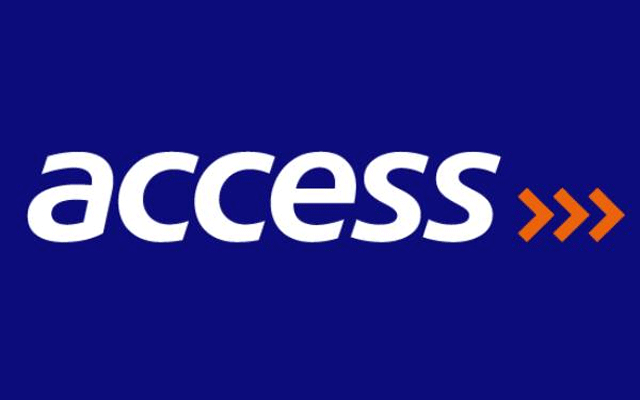Those who knew Access Bank Plc in the days when Nigeria’s banking space was populated by 104 mostly fringe players may not have given it a fighting chance in a shark infested river that the play-field became and remained over the years.
It was a bank that struggled to meet the first recapitalization test of N2bn, or thereabout, resulting in the entry into the fray of a team of young strategic investors at a time when cowboy banking was a catchphrase.
Not many at the time also gave the twin young men of Aigboje Aig-Imoukhuede and Herbert Wigwe much fighting chance, for very soon after crossing the N2bn huddle that many failed, the then new Governor of the Central Bank of Nigeria (CBN) came up with an over ambitious target: N25bn minimum capital.
At the time, Nigerian banks were handed an 18-month deadline to recapitalize, or merge with other entities to achieve the target, resulting in all banks approaching the Nigerian Stock Exchange (NSE) to list their shares and raise fresh capital, after which they engaged in merger talks with peers. During the period, the size of your capital determined your negotiation power and share of positions in the emergent entity (ask the legacy partners in today’s Skye Bank, Unity and Sterling banks).
In all of these, the Access Bank core investors were always conscious of the need to protect the brand identity, guided by five-year strategic development plans and targets set, that have been followed very religiously.
Soon after the process began, Access Bank acquired and fused Capital Bank International Plc (former Commercial Bank Credit Lyonnaise Limited) between July 2004 and December 2005, as well as Marina International Bank Limited.
After an attempt to swallow Union Bank Plc, which was warded off at the time, the bank later took on Intercontinental Bank Plc, a supposedly bigger fish that had been severely injured, along with its 460 branches, among others.
As a result of the mergers, Access Bank entered the league of top Nigerian banks (in terms of capital) at number four, coming behind First Bank of Nigeria, Zenith Bank, and United Bank for Africa. It came ahead of of Ecobank Nigeria, which acquired Oceanic Bank International; and Guaranty Trust Bank, which before then was at number four.
Anyone who thought Access Bank would call it a day at the acquisitions market was on Monday, December 17, 2018, proven wrong with the plan to acquire Diamond Bank Plc.
The Attraction
For Wigwe, chief executive of Access Bank, the latest move is in line with its record and clear strategy of acquisition and integration.
Access and Diamond banks, he continued, “have complementary operations and similar values and a merger with Diamond with its leadership in digital and mobile-led retail banking, could accelerate our strategy as a significant corporate and retail bank in Nigeria and a Pan-African financial services champion.
“…We believe that this platform, together with the two banks’ shared focus on innovation, financial inclusion and sustainability, can bring benefits to Access and Diamond customers, staff and shareholders.”
In its own notice to the NSE, the board of Diamond Bank agreed “that the merger is in the best interest of all stakeholders including, employees, customers, depositors and shareholders and has agreed to recommend the offer to Diamond Bank’s shareholders.
The notice by Uzoma Uja, company secretary/Legal Adviser of Diamond Bank added: “Immediately following completion of the merger, Diamond Bank would be absorbed into Access Bank and it will cease to exist under Nigerian law. The current listing of Diamond Bank’s shares on the NSE and the listing of Diamond Bank’s global depositary receipts on the London Stock Exchange will be cancelled, upon the merger becoming effective.”
The Emergent Access Bank
All things being equal, judging by the most recent figures of both banks, the acquisition will give birth to a new Access Bank that has N6.11tr in total assets, N5.415tr total liabilities, including customer deposits amounting to N3.542tr, among others.
In terms of network, the new Access Bank will have 675 branches, even as many of them are concentrated in Lagos and urban centres across the country.
Diamond Bank will however bring to the table 27m customers, including 12m mobile accounts, a rich bouquet of small and medium enterprises and robust digital products, just as customer base of its suitor will jump significantly.
Following the fusion, the emergent Access Bank is expected to add new allotted shares of 6.6bn units, which when added to the existing 28.9bn shares, brings the new total to 35.5bn. The new shares are expected to dilute Access Bank’s shareholding by 19%, following which post-merger, Carlyle Group, Kunoch Holdings and Diamond Partners will own 3.3%, 1.7% and 1.1% of the enlarge Access bank respectively, according to equity analysts ARM.
Diamond Bank will also bring on board N217.1bn in book value, resulting in book value per share (BVPS) of N9.37.








